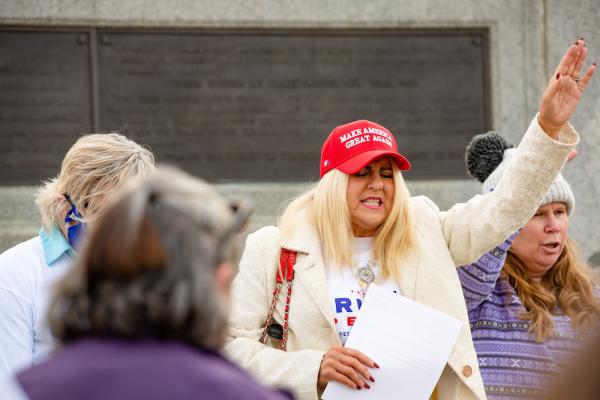Feb 11, 2021
This all could have been avoided: More prominent conservative Christian leaders and Christian media could have spoken out against the lie and reported the truth. Instead, many of them fanned the flames that led to this tragedy.
Read the Full Article

Already a subscriber? Login
